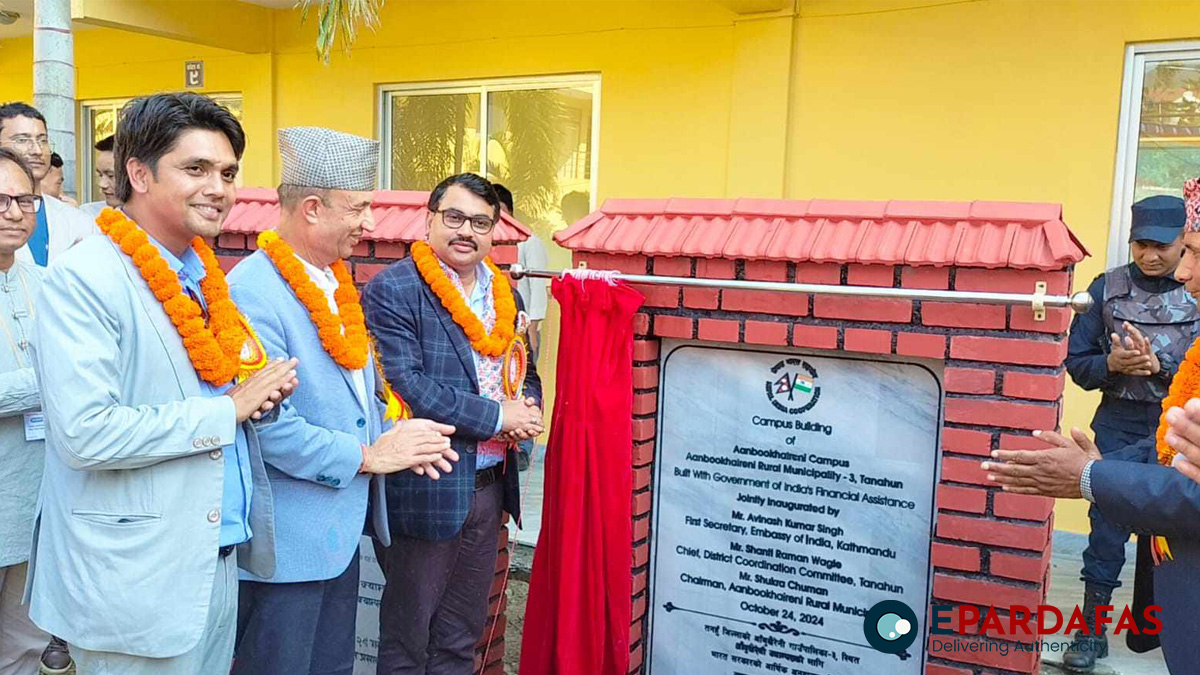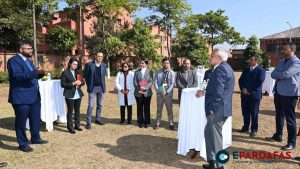
Aanbookhaireni Campus Inaugurates New Building with India’s Financial Assistance

The newly constructed campus building of Aanbookhaireni Campus, located in Aanbookhaireni Rural Municipality, Tanahun, was jointly inaugurated today. The project was made possible with financial assistance from the Government of India, amounting to NRs. 30.01 million under the ‘Nepal-India Development Cooperation’ initiative.
The inauguration ceremony was attended by Shri Avinash Kumar Singh, First Secretary of the Embassy of India in Kathmandu, Mr. Shanti Raman Wagle, Chief of the District Coordination Committee, Tanahun, and Mr. Shukra Chuman, Chairman of Aanbookhaireni Rural Municipality. Local political representatives, government officials, social workers, members of the campus management, professors, teachers, parents, and students also marked the occasion.
The grant from India was used to construct a double-storied building equipped with modern facilities for the campus. The project was identified as a High Impact Community Development Project (HICDP) and implemented through the District Coordination Committee of Tanahun, following an agreement between the governments of Nepal and India.
In their speeches, officials from the District Coordination Committee, Aanbookhaireni Rural Municipality, and the Campus Management Committee expressed their gratitude for India’s continuous support in key development sectors, benefiting the people of Nepal.
Established in 2005, Aanbookhaireni Campus is a community-based institution affiliated with Tribhuvan University (TU). It offers undergraduate programs in Business Studies (BBS) and Education (B.Ed), with around 300 students, 90% of whom are female. The new campus infrastructure aims to enhance the learning environment and support the region’s educational development.
India and Nepal share long-standing and multi-faceted cooperation, and the implementation of High Impact Community Development Projects (HICDPs) highlights India’s continued commitment to Nepal’s development by strengthening infrastructure in key areas.












Comments